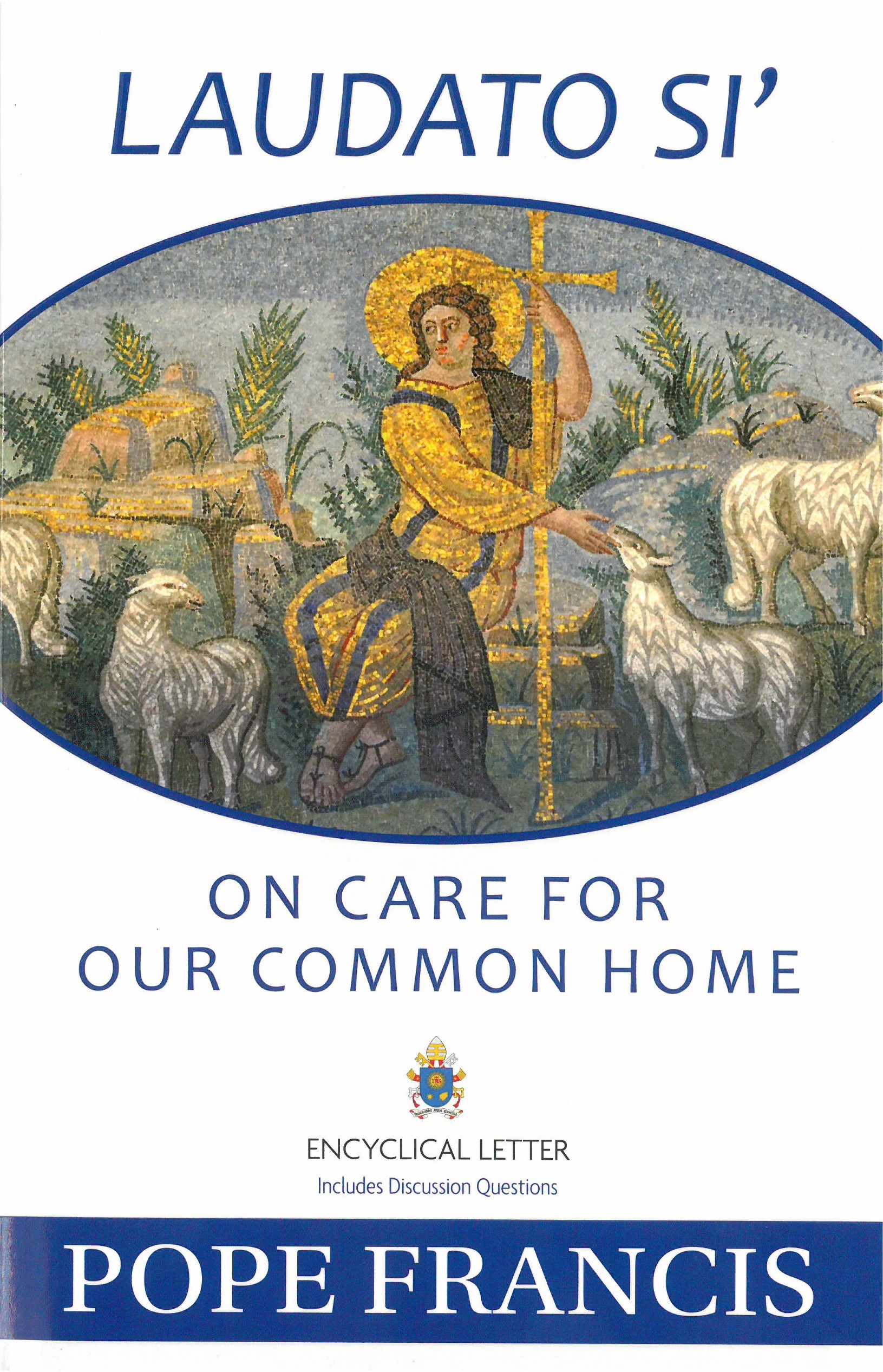By Associate Ramona Huebsch Kadow
 In his encyclical, Laudato Si’, Pope Francis refers often to Saint Francis of Assisi, whom he took as his guide and inspiration when he was named Bishop of Rome. And, as you might know, the very name of this encyclical comes from Saint Francis’s Canticle of the Creatures. And so he begins:
In his encyclical, Laudato Si’, Pope Francis refers often to Saint Francis of Assisi, whom he took as his guide and inspiration when he was named Bishop of Rome. And, as you might know, the very name of this encyclical comes from Saint Francis’s Canticle of the Creatures. And so he begins:
“In the words of this beautiful canticle, Saint Francis of Assisi reminds us that our common home is like a sister with whom we share our life and a beautiful mother who opens her arms to embrace us. ‘Praise be to you, my Lord, through our Sister, Mother Earth, who sustains and governs us, and who produces various fruit with coloured flowers and herbs’.” (1)
Why do people all around the world listen when Pope Francis speaks about the environment and the global climate change we are experiencing? I think it is because he has spoken from his heart in simple language and addressed this letter to all of his sisters and brothers on this planet. No one is left out. We each have something at stake here.
Pope Francis asks us to simplify our lives and detach ourselves from the pull of consumerism, only after first choosing a simple lifestyle for himself. He speaks from personal experience as a man who has walked the walk with the poor, not only in the barrios and homes of the marginalized in his beloved home country, but in every country he has visited as our Holy Father. Always he makes room in his schedule to be with the imprisoned, the homeless, the hospitalized, the immigrants. So, he comes across to us as authentic and caring as he speaks from the heart. For him, personally, the bottom line is not profit, but is the Common Good of all on our planet. He asks for honest debate and a “new dialogue about how we are shaping the future of our planet.” (14)
A recent editorial in The National Catholic Reporter said that at times the language of this encyclical will make some of us “squirm.” And, indeed it does! Pope Francis points out that it is the rich nations that do most of the polluting, but it is the poor who have to live with the rising oceans, poor water quality and air pollution—and they have the least technology and resources to deal with it. Listen to this:
“It seems that some consider themselves to be more worthy than others. While some are mired in desperate and degrading poverty, with no way out, others have not the faintest idea of what to do with their possessions, vainly showing off their supposed superiority and leaving behind them so much waste which, if it were the case everywhere, would destroy this planet.” (90)
The tone of this encyclical is both disarming and eloquent. Pope Francis at times talks with us like a beloved father in very plain language, but easily transitions into the language of economics, technology and power politics. He scolds, reasons, pleads, inspires, but always words of hope and encouragement shine throughout his writing from beginning to end:
“In the heart of this world, the Lord of life, who loves us so much, is always present. He does not abandon us, he does not leave us alone, for he has united himself definitively to our earth, and his love constantly impels us to find new ways forward. Praise be to you, my Lord!” (245)
Pope Francis. Laudato Si’: On Care for Our Common Home. Huntington, Ind., Our Sunday Visitor Publishing Division, 2015.

